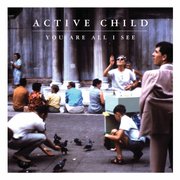Like "New Coke" or the 3D TV, follies that emerge from an attempt to be inventive are common in many industries, including music--think of concept albums that come across as forced or ham-fisted, or five-minute instrumentals that grow repetitive halfway through. One of the most commonly misused tricks of the music trade, though, is the inclusion of synthetic sound.
Sure, certain artists can handle synthesizers exceptionally well--they're the musical equivalent of chef Emeril Lagasse with a potent seasoning and a cautious, controlled "Bam" here and there. They don't ignore the basics. Many others don't know when enough is too much, and they leave listeners with an overdone album that they would just as soon forget.
The use of electronics in music can become little more than a cheap quirk at times, trading true innovation for fleeting novelty. Take, for example, the well-received single "Carry On" by indie-pop band fun.
Most of the song has a straightforward pop mentality and, thus, is one that I generally like. It has a classic texture throughout--relying on the rhythmic click of acoustic guitar strings and resonating piano mallets--which accounts for its success in both pop and alternative radio. But in the track's outro, producer Jeff Bhasker (known for his work with renowned self-enthusiast Kanye West and Alicia Keys) can't keep his hip-hop pedigree hidden any longer. He creates a distorted, reverberating reproduction of singer Nate Reuss' perfect pitch and then, with no rhyme or reason, inserts the line, "No one's ever going to stop us now" at random intervals. Someone should have, in fact, tried to stop him.
Now, there's nothing inherently wrong with Bhasker's production. It's not hard to find well-made songs that employ similar, if not identical, electronic trickery, perhaps even more regularly than in "Carry On." I take issue with the fact that Bhasker did it so needlessly and jarringly. It's a tack used not for the benefit of the song or the listener, but for the sake of using a gimmick regardless of whether it is ill-fitting or contextually tactless. But when crafting a song, you don't need something. You need the right thing.
One way to find "synth done wrong" is to switch the radio to a hip-hop station. Before you call me "biased," know that I don't mean to belittle rap or hip-hop in the least. This common mishandling of artificial instruments occurs because of two factors.
First, while bands can benefit from the ability to perform more fluidly and play off each other, hip-hop artists must follow a more rigid, predetermined path.
Second, producers of this genre tend to build the backing rhythm based on crude demos, many of which only include a basic click track to keep time. For this reason, a producer might make a decision to use a particular recording method just to break up the monotony of a single beat.
Luckily, for every musician or producer who throws in an electronic device incorrectly, there is another who does it with finesse and experience. One such individual is soulful electronic artist Pat Grossi, otherwise known by his stage name, Active Child. Grossi is an example of self-made success in more ways than one. He has a large part in the production with Active Child, giving him infinite control over the synth in his records. The single "Hanging On" from his debut studio release, 2011's "You Are All I See," became so successful that English pop artist Ellie Goulding covered it on her 2012 album "Halcyon." This version appeared in a feature film, two television shows and a trailer for the video game "God of War: Ascension"--not too shabby for a first single.
The reason Active Child's music is engaging, though, isn't because it uses the latest recording techniques or turns the auto-tune dial to 11. It's because Grossi acknowledges synthesizers and artificial-sound programs as more than just gimmicks with a short shelf lives: If producers and artists continue to exploit them incorrectly, listeners will grow jaded.
These are truly the instruments of tomorrow. We just have to figure out how to manage them today.




Comments